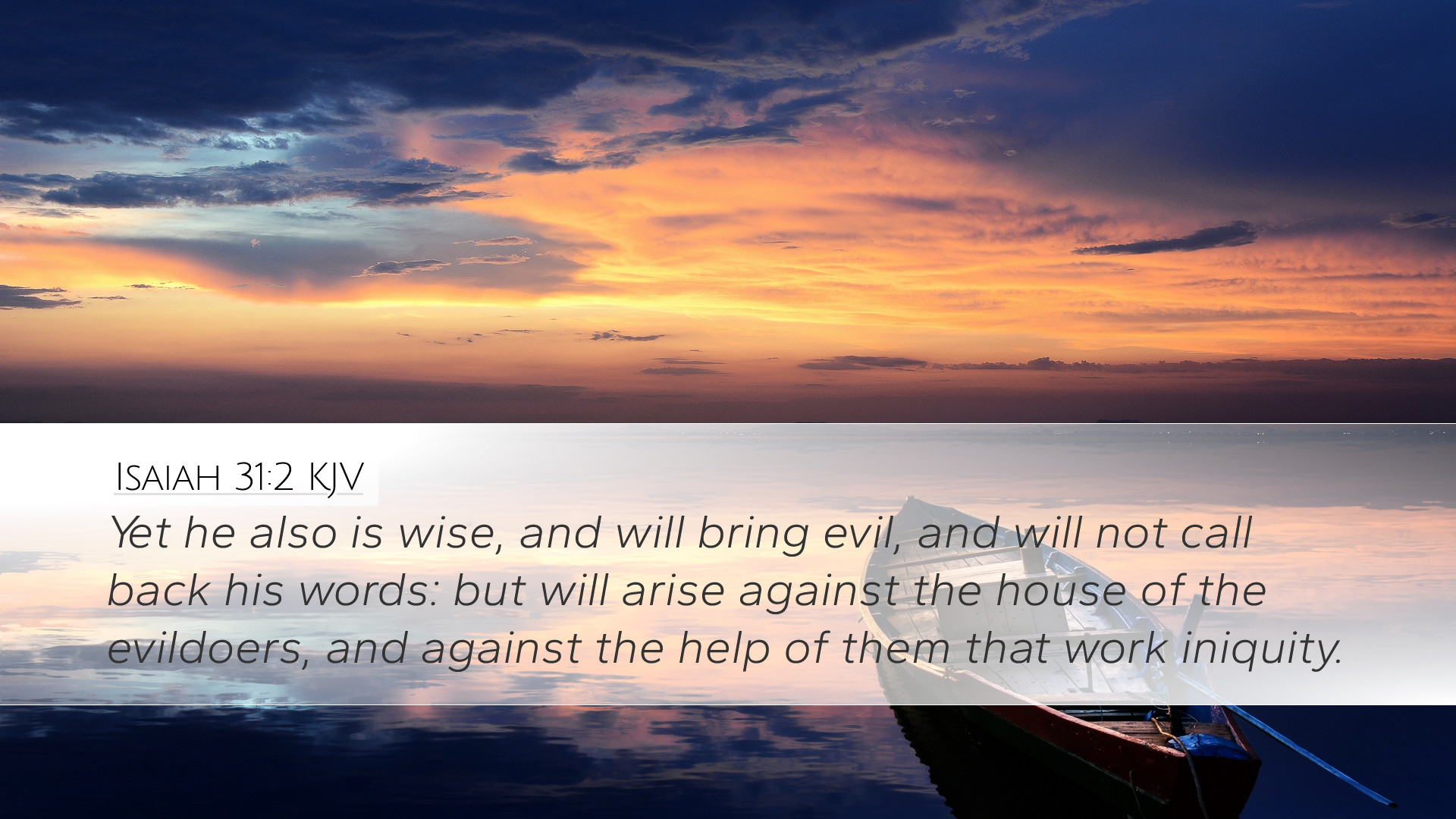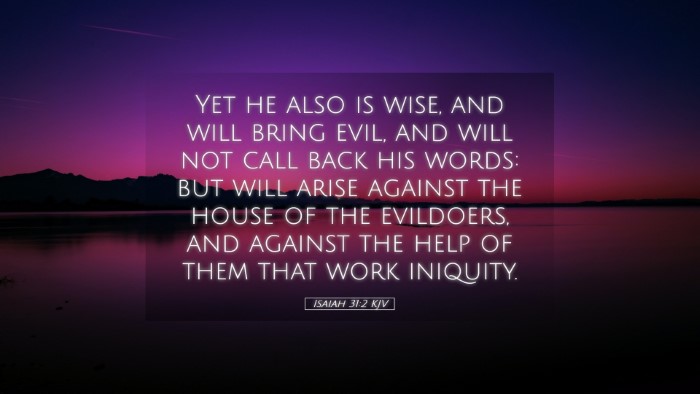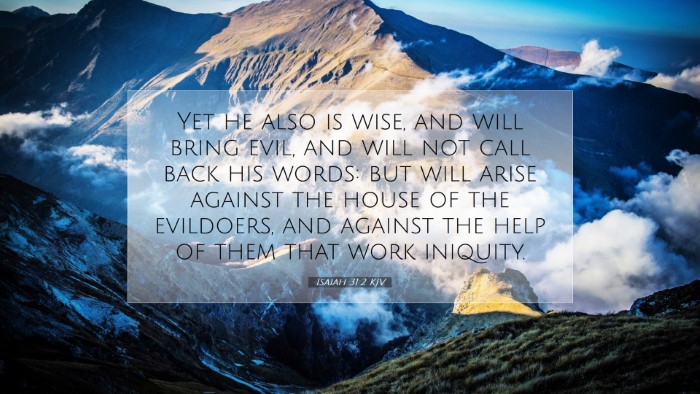Commentary on Isaiah 31:2
Verse: "Yet he also is wise and will bring evil, and will not call back his words: but will arise against the house of the evildoers, and against the help of them that work iniquity."
In this verse from Isaiah, we find a profound declaration regarding the nature of God’s wisdom and judgment. The prophet Isaiah emphasizes a dual aspect of the divine character—both wisdom and severity. This commentary synthesizes insights from noted theologians and biblical scholars such as Matthew Henry, Albert Barnes, and Adam Clarke to elucidate the meaning and implications of this passage.
Contextual Overview
The Book of Isaiah addresses the spiritual and moral decline of Israel, calling them to trust in God rather than in foreign alliances. Chapter 31 makes a pointed remark about seeking refuge in Egypt, symbolizing reliance on worldly power instead of divine intervention. Isaiah's message is one of warning intertwined with a hopeful reminder of God's sovereignty.
The Wisdom of God
Matthew Henry emphasizes that God’s wisdom is shown in His governance of the world. He will bring judgment upon the evildoers, a theme prevalent throughout the prophetic writings. This divine wisdom entails not merely the ability to assess situations correctly, but also the competence to orchestrate events according to His perfect plan.
Henry notes that God’s judgments are both just and necessary, aligning with the greater narrative of salvation history. He asserts, “Though God may seem to delay justice, His righteous ire against sin will culminate in inevitable judgment.”
Divine Judgment
Albert Barnes in his commentary highlights the inevitability of judgment against those who work iniquity. The phrase "bring evil" here refers not to malevolence on God's part but to the consequences that follow sin. God is portrayed as the architect of justice who will fulfill every word of His promise regarding judgment.
Barnes elaborates that God’s actions are deliberate; He will not “call back his words,” indicating that His prophecies and warnings are to be taken seriously. This serves as both warning and reassurance, ensuring the faithful that justice will be served.
God’s Action Against the Evildoers
According to Adam Clarke, the “house of the evildoers” represents not merely individuals but entire systems that oppose God’s righteousness. Clarke provides a necessary insight into the communal and societal implications of sin. When a nation forsakes the Lord, seeking help from wickedness, they place themselves under divine scrutiny.
Clarke also discusses the importance of recognizing the spiritual forces at work. The term "help of them that work iniquity" refers to alliances formed in rebellion against God, demonstrating the futility of attempting to find security apart from Him. The ultimate conflict is between righteousness and iniquity, which resonates throughout the fabric of scripture and human history.
Theological Implications
- Trust in God vs. Human Alliances: The passage underscores a common theological theme—true security lies in reliance upon God rather than human efforts.
- God’s Sovereignty: God's ability to bring forth judgment affirms His sovereignty over all creation. This is a central tenet in reformed theology.
- Hope Amidst Judgment: There exists an underlying hope that God, despite His judgment, holds the power to restore and redeem. The faithful are called to remain steadfast.
Practical Applications
This verse speaks powerfully to modern believers, urging them to examine where they place their trust. In a society often tempted to seek security through worldly means, Isaiah’s words serve as a reminder of the futility of such reliance.
Pastors can use this passage to challenge congregations to evaluate their dependence on God, rather than worldly systems. It serves as a call to return to genuine faith grounded in trust and obedience.
Theologians can explore the implications of God's wisdom and judgment in their theological framework, considering how these attributes cohere with the notions of grace and mercy.
Students of Scripture are encouraged to delve deeper into the complexities of God's nature as revealed in the Old Testament, enriching their understanding of biblical theology and its practical outworking in everyday life.
Conclusion
Isaiah 31:2 encapsulates a significant theological principle regarding God's wisdom in enacting judgment. Through the insights provided by esteemed commentators, we gain a richer appreciation of this verse's implications for faith and practice. Ultimately, it calls for a sincere examination of where our trust lies and a reminder of God’s steadfast commitment to justice and righteousness.


